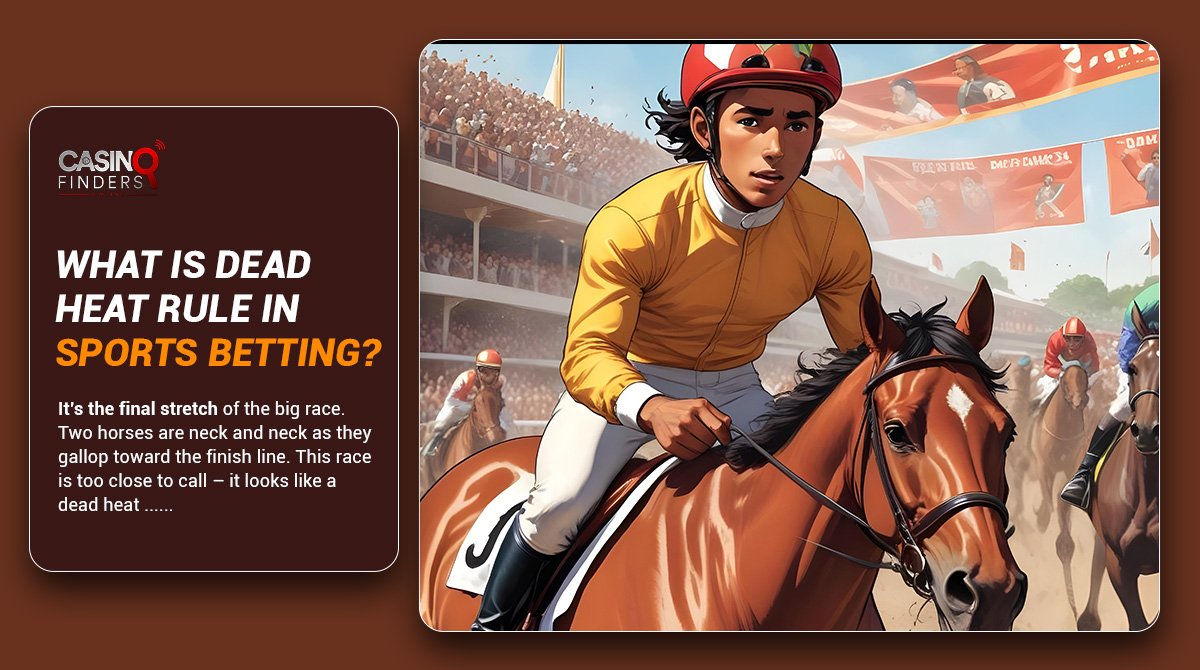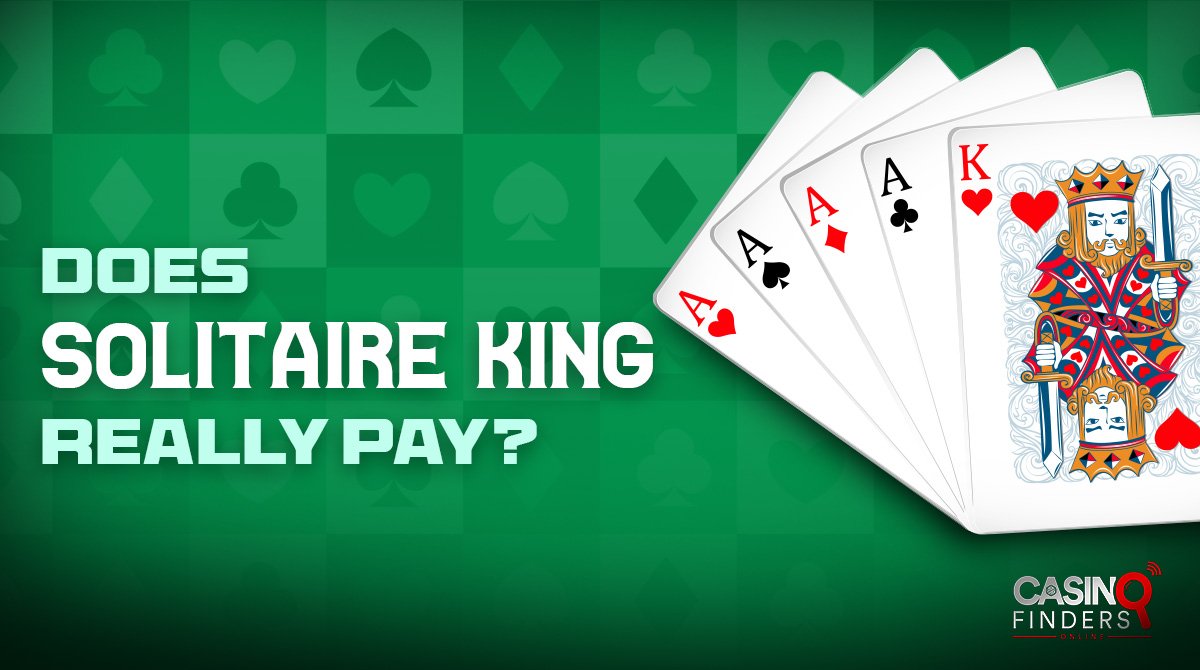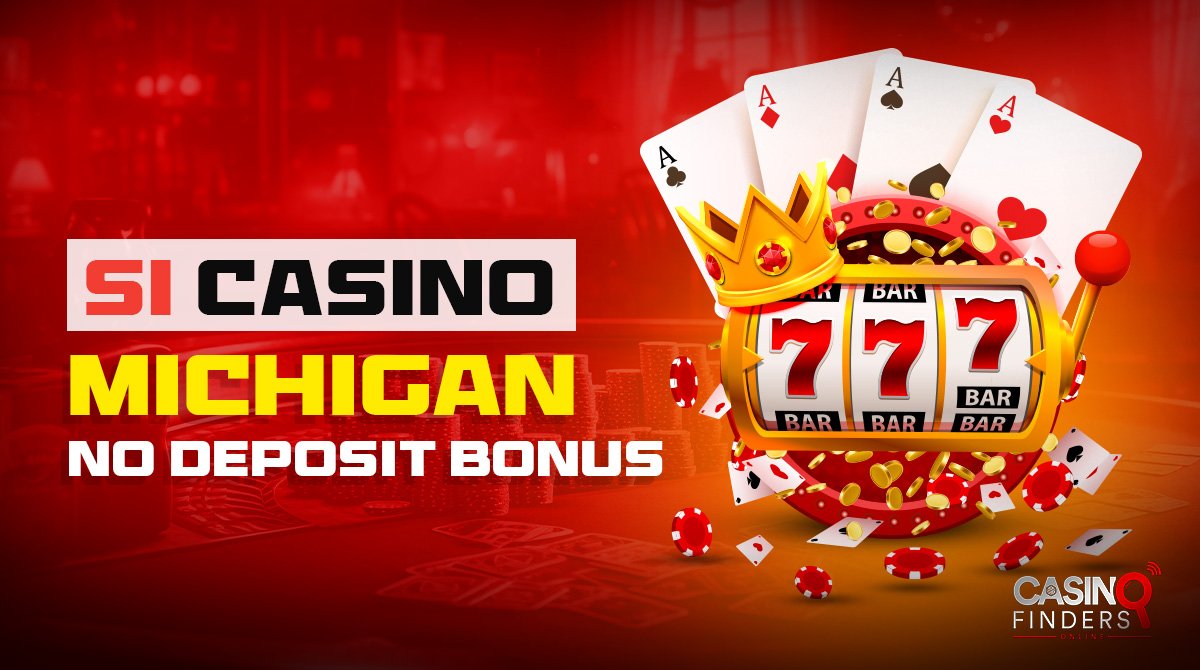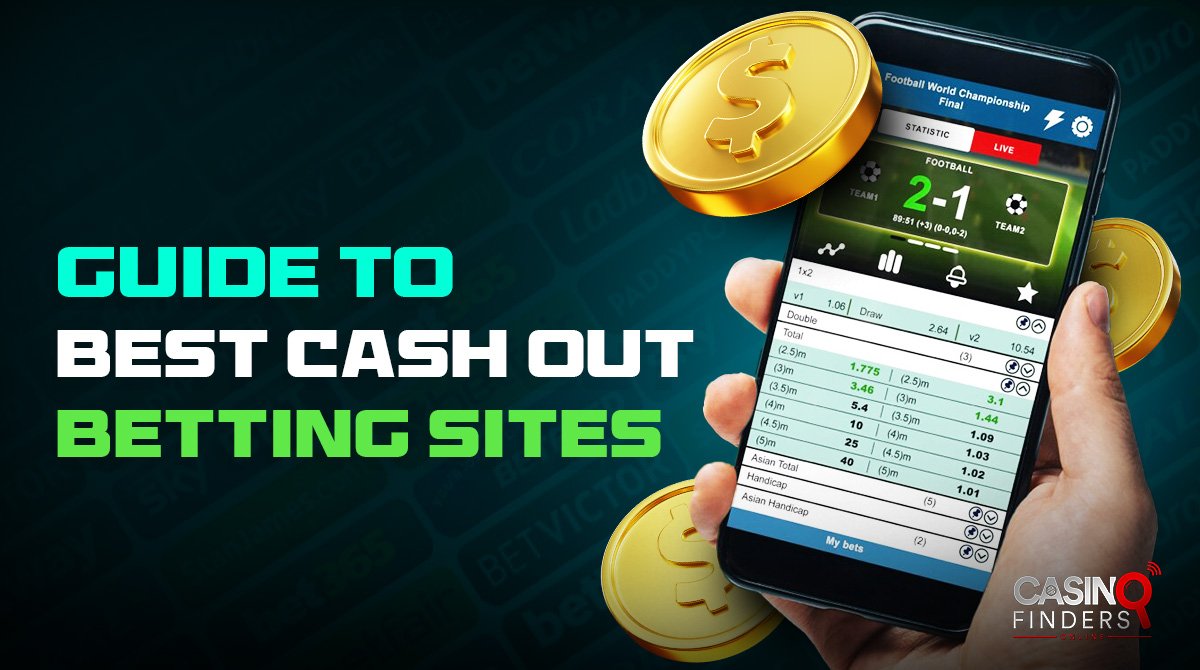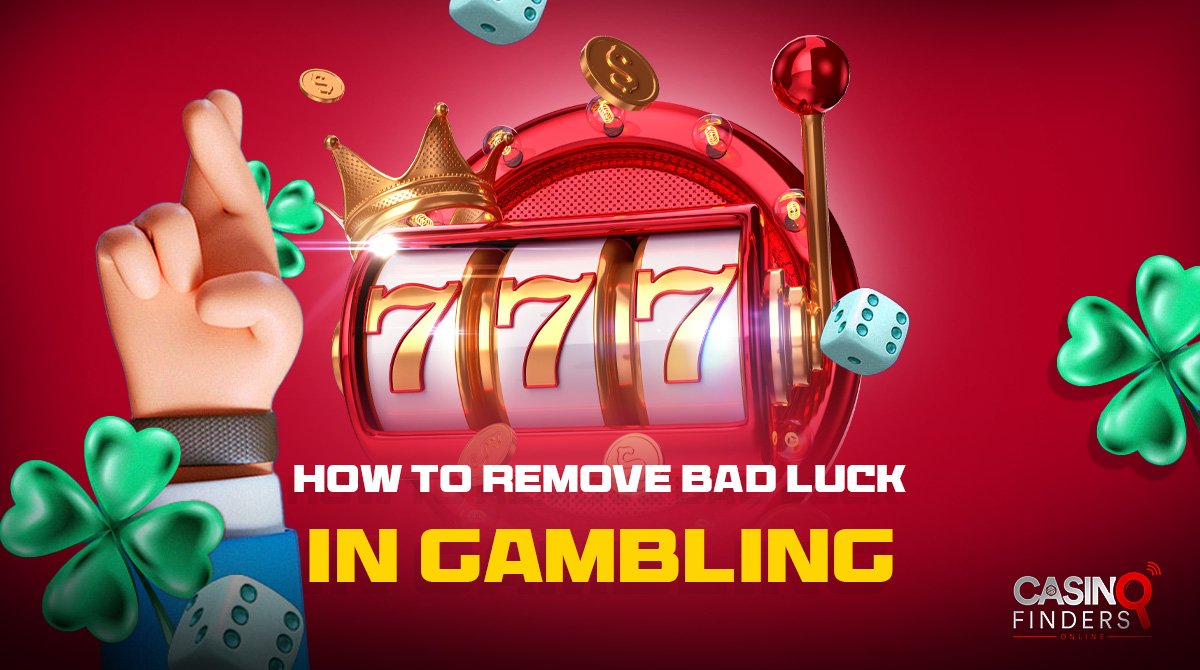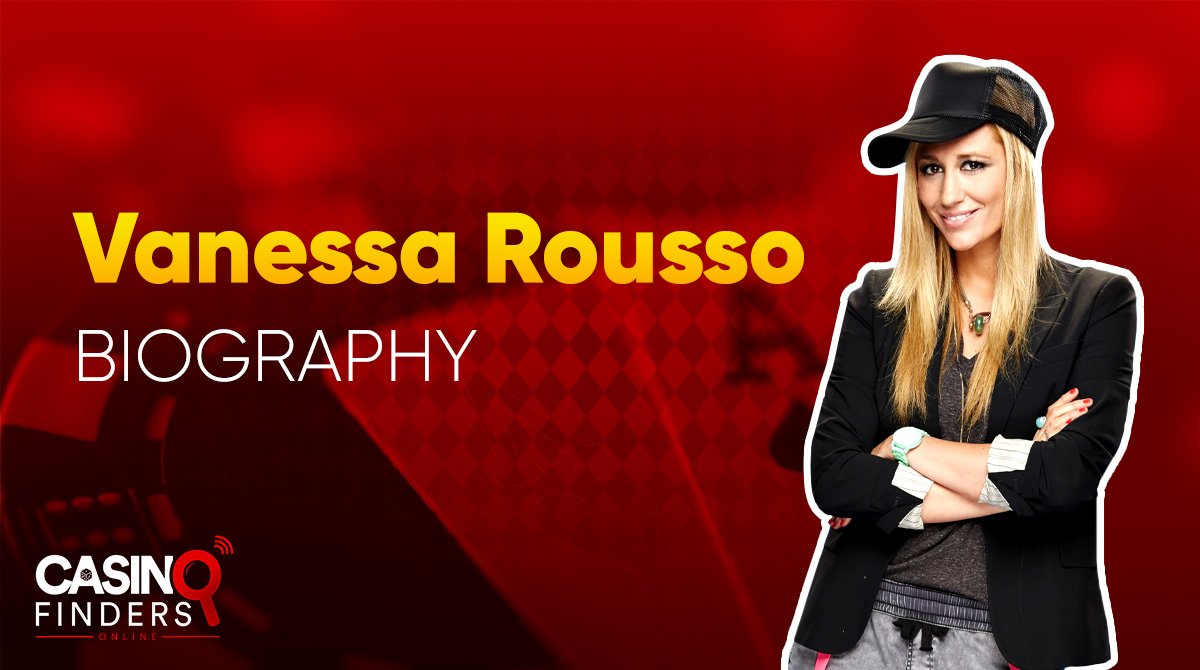Dead Heat Rule Explained (The Easy Way!)
Simply put, the dead heat rule is a rule that is applied when more than one outcome occurs in a particular market. It is a settlement policy used in sports betting to determine payouts when two or more selections finish in an exact tie in an event. For instance, suppose you are betting on the college football first-half market, and at the end of the first-half, both teams are tied at 17; neither team won nor lost. So sportsbooks need to find a way to grade bets and decide on the payouts. Ordinarily, they would grade bets as a push which is typically a full refund- some sportsbooks may keep a small portion as commission.
For sportsbooks, push and refund does not equate to profit. So, they cannot gain a profit when they do a full refund. So, here is when they apply the Dead Heat Rule to secure their profit.
How Does the Dead Heat Rule Work?
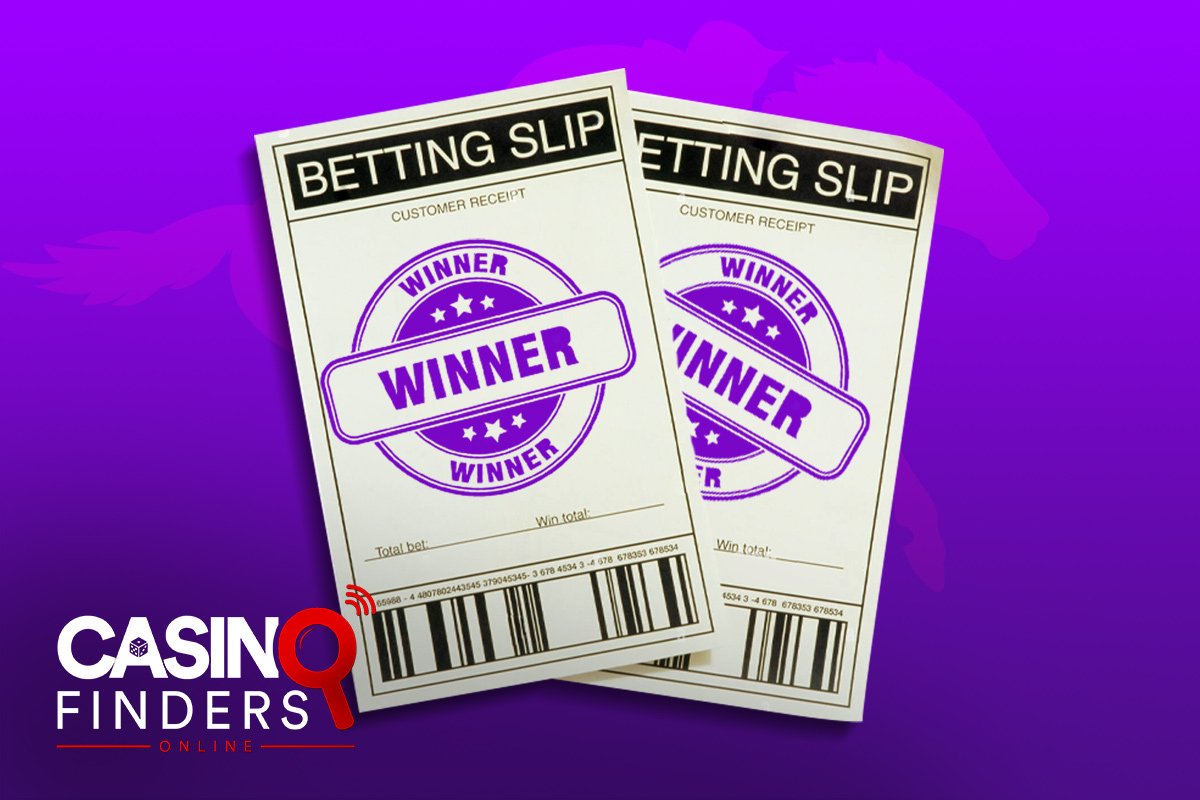
When a dead heat occurs, and bookmakers apply the rule, the stakes on wagers are divided between the number of winners. So if you bet $10 on a horse that finished in a dead heat, you’d get back half your stake – $5 – since there were essentially two “winners.” This reduces potential payouts and prevents sportsbooks from taking a big loss. In the case of our college football example above, instead of one possible outcome to be paid out, two outcomes occurred. So, you will receive half of your odds. It is definitely different from the case where more than two outcomes occur and we will discuss it later in this article.
Betting On The Favorite vs. Underdog
Let’s use our college football example again. Here is how wagered on the favorite:
| Betting market | College football first-half |
| Favorite odds | -370 |
| Stake | $100 |
If you remember, -370 odds mean if you wager $370, you would win $100. Now, you wagered $100, and if the team wins, you will win $27 and a net profit-payout- of $127 (your initial stake + $27 win).
Now, the dead heat occurs at the end of the first-half, and the sportsbook applies the dead heat rule. Now, you will receive half of the “payout”. This is crucial to understand that you receive half of the payout, not half of the profit. In this particular example, you will receive half of the $127, which is $63.5. It means from your original stake, you actually lost money- $36.5, to be exact.
So, in the case of betting on the favorite, push and refund is a better outcome for bettors. But if the sportsbook applies DHR, betting on the favorite does not favor bettors. Still, it is better than not receiving anything back at all!
So, a general rule of thumb:
When the dead heat rule is applied, negative odds(favorites) are not in your favor.
Now, what about the underdog? Suppose you wagered on the underdog in the same game:
| Betting market | College football first-half |
| Underdog odds | +285 |
| Stake | $100 |
Here, you would bet $100 to gain $285 profit and a total payout of $385. Now, the same scenario: dead heat occurred, and you will receive half the payout, which is $192.50. So, even though the dead heat rule applied, you gained an extra $92.50. So, push and refund do not favor bettors when betting on the underdog and dead heat occurs.
So, another rule of thumb:
Positive odds(underdogs) are in your favor when the dead heat rule is applied.

No Options.
 4.8
4.8Dead Heat Grading: Golf, Horse Racing, And Events With More Than Two Outcomes
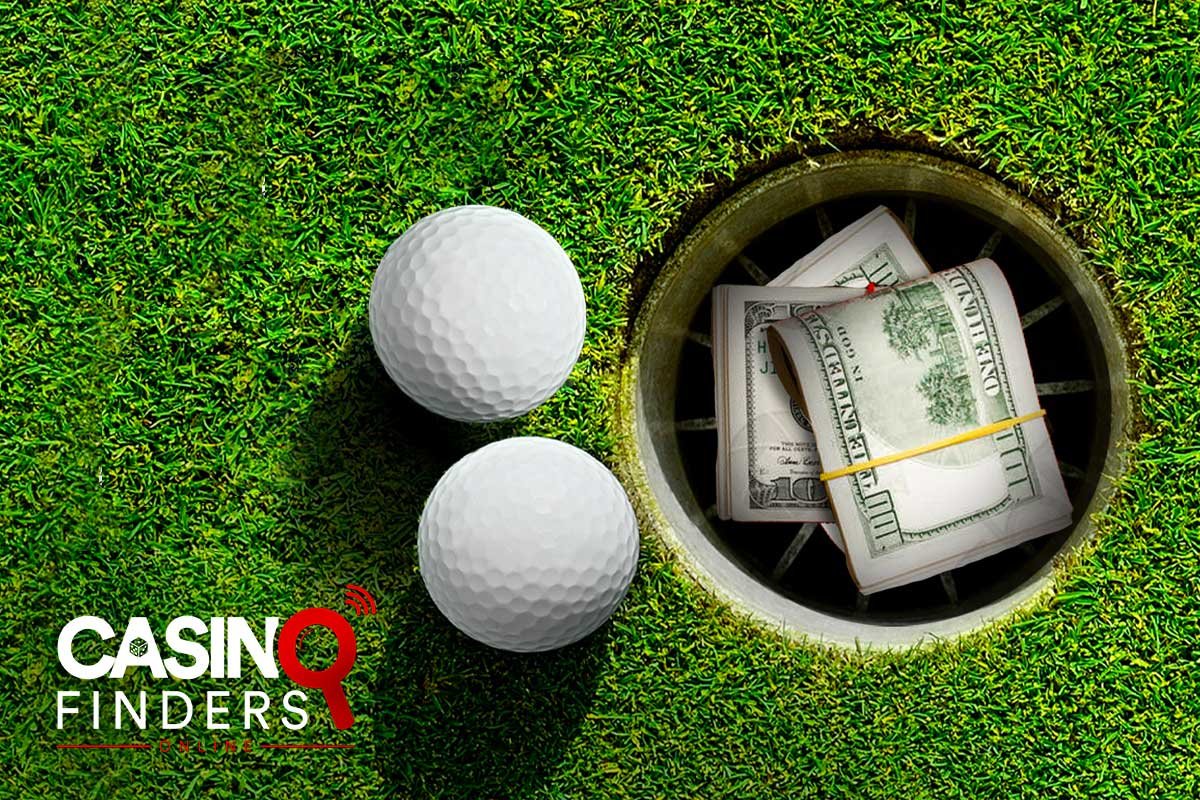
Typically, you will see dead heat happening more in the sports like golf at events like the Masters, the British Open, US Open, and other tournaments. For example, you bet on the top five finishers in US Open. In this case, more than five golfers may finish in the top five. How? Imagine three golfers tying for fifth place. Now, you have 1,2,3,4,(5-6-7). These three will be counted as tie for the fifth position, and seven golfers are finishing in the top five.
All right, now what happens to your wager and other bettors who bet on top-five finishers? You will receive 5/7th of your payout no matter your selection’s place. Here is an example to help you better understand:
| Betting market | US Open Top-Five Finisher |
| Player odds | +650 |
| Stake | $100 |
In this example, you wagered $100 for a total payout of $750(your initial stake+ winning). But dead heat occurred, and you will receive 5/7 of the total payout, which is $536. It is a significant profit on your $100 wager. So, again, the dead heat rule favors plus money wagers or positive odds.
Exotic wagers like Exactas and Trifectas in horse racing are impacted even more, as dead heats create more winning combinations. Sportsbooks adjust the payouts on these types of bets proportional to the dead heat scenario.
So, in the end, let me summarize everything we’ve covered so far with this million-dollar tip for dead heat rule betting:
The more evenly the rule applies(like 5/7th in our golf example), the less your payout will be affected. Conversely, when you bet on markets with only two possible outcomes, like NFL, MBA, head-to-head markets, and Moneyline markets, the dead heat rule will decimate your profit pretty badly.
Caveat: When Will The Dead Heat Rule Be Applied?
It is on you as a bettor to know when the rule will be applied and realize situations where sportsbooks will apply the dead heat rule. Here is to help you better recognize those situations:
The Dead Heat Rule Will Never Be Applied When The Tie Is Offered As An Actual Option In The Betting Market.
So, if the first-half market had favorite, underdog, and tie as an option, the DHR would not be applied. But remember that each sportsbook has its own Dead Heat Rule policy for each bet and betting market. So, it is very important to carefully read the sportsbook policy before placing a bet.
Final Thoughts
The dead heat rule is an important but often misunderstood concept in sports betting. This rule comes into effect when two or more selections finish in an exact tie in a race or game. All bets on the tied selections are calculated as half-wins, with the stake divided proportionately to the number of winners. But it is important to recognize which betting options are more likely affected by this rule. Hence, make sure to read the sportsbook terms and conditions before placing any wager, as DHR Policy varies from bookmaker to bookmaker.





 Written by
Written by 



 Cashback Bonus
Cashback Bonus



